This article was co-authored by Katrina Georgiou and by wikiHow staff writer, Kira Jan. Katrina Georgiou is a career coach and the founder of Katrina Georgiou Coaching based in Silicon Valley. Katrina helps individuals find new careers as well as career advancement, including resume writing, interview preparation, salary negotiation, and performance reviews. Trained in the co-active method from the Coaches Training Institute (CTI), Katrina uses personalized communication and leadership strategies to support her clients in building successful and fulfilling careers.
There are 25 references cited in this article, which can be found at the bottom of the page.
This article has been viewed 15,072 times.
You’ve made it to the last round of interviews for your dream job! How do you seal the deal? After all, this is the stage where you and the interviewer are making a final decision on whether or not you’re a good fit for the company. With the right prep and strategies, you can go into that last round calm, collected, and confident! From preparation to following up after the meeting, we’ll walk you through the best tips and tricks to succeed at your final interview.
Steps
Do practice interviews.
-
Talk through answers to common interview questions. Ask a friend or family member to practice giving you sample interview questions until you feel comfortable.[1] X Research source Alternatively, practice talking through your answers while looking at yourself in the mirror or recording yourself.[2] X Research source
- Practice elaborating on your strengths and describing your weaknesses.
- Practice answering questions on why you’d like to work at that particular company.
- Also, think about how your past roles help you be a good fit for this position.[3]
X
Expert Source

Career Coach Expert Interview. 25 June 2020.
Use the STAR method to answer interview questions.
-
Organize your answers to common interview questions in four parts. The situation-task-action-results (STAR) method allows you to avoid rambling and give clear answers that demonstrate your capabilities. You can use this strategy for most interview questions about your past work experience or questions that ask about a time when you demonstrated a particular quality. Keep your answers short and succinct (around 2 minutes long). Check out the example for answering “Tell me about a time when you showed leadership.”[4] X Expert Source

Career Coach Expert Interview. 25 June 2020. [5] X Research source- Situation: “When I worked at [company], I managed a team of five contractors for a 10-week project.”
- Task: “I delegated weekly project tasks and trained up newer team members on company standards.”
- Action: “I set regular deadlines and check ins to keep everyone on track and on the same page.”
- Result: “The client was so happy with the end result my team produced, they’ve since hired our firm 3 more times.”
Research the company and interviewer beforehand.
-
Find common ground by researching your interviewer’s background. Look at the company’s bio page, or a professional site like LinkedIn to find out how long they’ve been with the company, their career path, and interests. Having that knowledge will allow you to share common interests to make a great first connection, especially if you’re now interviewing with a senior-level employee.[6] X Research source
Determine average compensation for the role.
-
Go into the interview with a salary number in mind. That way, you’ll have a well-informed idea of what you’re looking for in a potential offer. To find typical compensation for the role, search online for average salaries at the company or average salaries for that particular type of role within the industry.[7] X Trustworthy Source CareerOneStop Online resource sponsored by the U.S. Department of Labor providing information on job training, employment opportunities, and careers Go to source If your interviewer asks what you expect for a salary, don’t give the first number, or you might end up giving yourself away at a discount.[8] X Research source
- “I’d like to get a little more information on your typical compensation package and benefits so I can give a more informed answer.”
- “I know salary and benefit packages stack up differently in this industry. What is your company’s typical compensation for this role?”
Wear the right professional attire.
-
Dress slightly more formally than company employees' daily clothing. For instance, if you’re a man and you’ve seen male employees wear short-sleeve polos and khakis to work, wear a nice button-down shirt. If you’re a woman and you’ve noticed the female employees wear nice dresses to work, wear a dress and pair it with a blazer, or wear a nice blouse and trousers.[9] X Trustworthy Source CareerOneStop Online resource sponsored by the U.S. Department of Labor providing information on job training, employment opportunities, and careers Go to source
- Keep your hair, nails, and facial hair neat and clean. Go for minimalist makeup and accessories.
- Choose non-distracting patterns for your ties, shirts, dresses, accessories etc.
- Adapt your outfit to the industry in which you’re applying. For instance, you likely won’t wear a suit to a construction site, and you may not want to follow the conservative pattern and colors rule if you’re applying for a design job in a creative industry.
Arrive early so you don't have to rush.
-
Show up 10-15 minutes before the interview. Even if you’ve been to the location before, planning for an extra fifteen minutes gives you buffer time for traffic, slow elevators, and checking in at reception.[10] X Research source
Greet the interviewer with professional enthusiasm.
-
Use a strong handshake, make eye contact, and smile.[11] X Trustworthy Source CareerOneStop Online resource sponsored by the U.S. Department of Labor providing information on job training, employment opportunities, and careers Go to source Remember the professionalism that got you to this final round and greet any new interviewers with those same strategies for a good first impression.
- Even if you’ve met the interviewer before, don’t get too comfortable. Maintain the same level of energy and decorum you had in your first round interviews.[12] X Research source
Be prepared to talk about your career goals.
-
Show commitment in answering “Where do you see yourself in 5 years?”[13] X Research source With that question, interviewers are trying to gauge your attitude towards work and filter out candidates who only want to use the job as a quick stepping stone.[14] X Research source
- First, talk about the next 2-3 years: “I want to continually improve my [skills listed in the job description] knowledge and look for opportunities to maximize my contribution to the department.”[15] X Research source
- Then, talk about the next 5-10 years: “After that, I’d love to be able to learn about other areas of the company including [other departments], exchanging expertise, to continue contributing to the company’s overall mission.”[16] X Research source
Come up with an answer for what you'd do first if hired.
-
Describe four things you’d do as a new employee. In the final interview, hiring managers will often ask, “What’s your plan for the first few months after starting this job?” Try this four-part approach below to demonstrate willingness to learn, eagerness to be a part of company culture, and capability to take initiative.[17] X Research source
- Part 1: “I’d get a briefing from my supervisor to understand the immediate challenges and aims of the company.”
- Part 2: “I’d get to know my colleagues and their roles.”
- Part 3: “I’d learn all company procedures and best practices to make sure I’m working as effectively as possible within the team.”
- Part 4: “I’d choose a project or task to work on in addition to my normal responsibilities.”
- Interviewers might ask for a 30-60-90 day plan. Divide your answer into three parts: learning about company goals and aims, digesting what you’ve learned about the company in order accomplish tasks, and delivering results.[18] X Research source
Ask questions about the job’s day-to-day responsibilities.
-
The right questions can give you key information about the role. By the final round of interviews, you’ve probably learned about the company and the role. Now it’s time to ask questions about what it would be like to work there.[19] X Expert Source

Career Coach Expert Interview. 25 June 2020. After all, interviewing is a two-way street, and you want to decide if the company’s a good fit for you![20] X Research source- “How would you describe the company culture?”
- “How do you evaluate success here?”
- “What do you think will be most challenging about this role?”
- “What does a typical day look like in this role?”[21] X Research source
- “What do you like best about working here?”
Inquire about the next steps.
-
As the interview ends, get a clear picture of when you’ll hear back. If the interviewer doesn’t tell you a date when they expect to have chosen someone, it’s good to ask. As you ask about next steps, thank the interviewer, and make sure to reaffirm your enthusiasm about the opportunity.[22] X Trustworthy Source CareerOneStop Online resource sponsored by the U.S. Department of Labor providing information on job training, employment opportunities, and careers Go to source
- “Thanks so much for all the information you’ve given me. I’m really excited about this role. When do you expect to make a hiring decision?”
- For a more proactive approach, offer to follow up by saying, “When should I follow up with you on your hiring decision?”[23] X Trustworthy Source Harvard Business Review Online and print journal covering topics related to business management practices Go to source
Send a thank you email.
-
Thank the interviewer to show enthusiasm and courtesy. As soon as possible after the interview, write a brief email thanking the interviewer for their time and expressing your interest in the position. Bring up one or two things you learned from the interviewer about the organization.[24] X Research source
- Address the email with “Dear (Hiring Manager’s Name).”
- Start by explicitly thank the interviewer: “Thank you so much for your time today and for the opportunity to learn more about the Program Supervisor position.”
- Mention something specific from the interview: “I was particularly inspired by hearing how the different backgrounds of Bax & Sons employees create such a dynamic and educational working environment, one I would sincerely like to join.”
- Conclude the email with “I look forward to hearing from you.” Close the email with “Best,” “Sincerely,” or “Thank you.” Put your name on the line below the closing along with a phone number.
Follow up again if you don’t hear back.
-
One week after the hiring decision date, send another email. Wait at least a week after the date the hiring manager gave you, because they may have made an offer to someone else (who may turn down the offer). Keep your email brief. Express your interest in the role again, and ask if they’ve made a decision.[25] X Research source
- Start your email like this: “Dear [Hiring Manager’s name], I hope this email finds you well. I wanted to follow up on my [date] interview for the [role].”
- Ask directly for news: “I’m writing to see if you have any news about that position.”
- End the email by expressing eagerness: “In our last talk, I particularly enjoyed learning about [aspect of the company] and am really excited about the possibility of working with you.”
- Offer to provide more information: “Please let me know if you need any additional information.”
Let the hiring manager know if you get another offer.
-
Email the hiring manager before the decision date. They may make you an offer faster if they know they might lose you to another company.[26] X Trustworthy Source Harvard Business Review Online and print journal covering topics related to business management practices Go to source
- Start the email by expressing interest: “Dear [Hiring Manager’s name], I so enjoyed learning more about [Company A] and I am still very interested in the [title] position.”
- Mention the new offer: “Since we spoke, I’ve received an offer from [Company B]. However, I am still very interested in working at [Company A].”
- Ask for more information: “Please let me know any news regarding your hiring decision as I continue to evaluate the offer I’m considering. Thank you.”
Seek out feedback even if you don’t get the job.
-
Use the experience to grow professionally. Send a feedback request email in response to a rejection email or if you know the company has chosen someone else.[27] X Research source
- Start the email by expressing thanks: “Dear [Hiring Manager’s name], Although I’m disappointed to hear you selected another candidate, I am so thankful to have had the opportunity to learn more about your company through the interview process.”
- Express how much you value feedback: “As I’m new to the job search/field/industry, your feedback is really valuable as I continue to grow professionally.”
- Ask directly for feedback: “If you have a moment, I’d really appreciate if you could please let me know any suggestions you have for how I can better present myself to employers in the future. Thank you.”
You Might Also Like
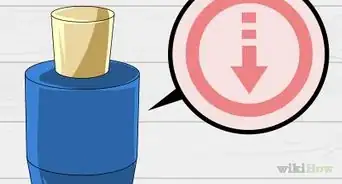
 How to Answer the Interview Question: "How Do You Build Relationships?"
How to Answer the Interview Question: "How Do You Build Relationships?"
-Step-5-Version-4.webp)

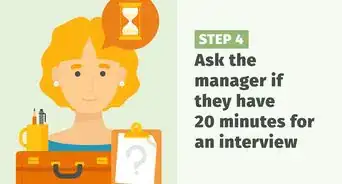
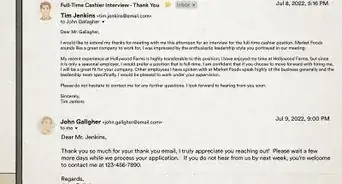 How to Know if an Interview Went Well
How to Know if an Interview Went Well




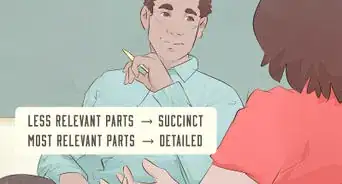
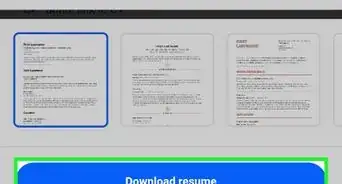
-Step-3-Version-2.webp)

References
- ↑ https://nationalcareers.service.gov.uk/careers-advice/interview-advice#get-ready-for-the-interview
- ↑ https://www.theguardian.com/careers/work-blog/how-to-set-up-and-conduct-mock-job-interview
- ↑ Katrina Georgiou. Career Coach. Expert Interview. 25 June 2020.
- ↑ Katrina Georgiou. Career Coach. Expert Interview. 25 June 2020.
- ↑ https://nationalcareers.service.gov.uk/careers-advice/interview-advice/the-star-method
- ↑ https://youtu.be/WzVyIE0mk1w?t=112
- ↑ https://www.careeronestop.org/JobSearch/Interview/negotiate-your-salary.aspx
- ↑ https://www.youtube.com/watch?v=u9BoG1n1948&t=245s&ab_channel=mayuko
- ↑ https://www.careeronestop.org/Veterans/JobSearch/Interviews/dress-for-success.aspx
- ↑ https://www.huffpost.com/entry/how-early-job-interview_l_5cabadfae4b02e7a705c1e15
- ↑ https://www.careeronestop.org/Veterans/JobSearch/Interviews/preparing-for-an-interview.aspx
- ↑ https://www.youtube.com/watch?v=-t2j_l_ItNg&t=58s&ab_channel=AustinKelly
- ↑ https://www.businessinsider.com/most-common-job-interview-questions-2015-4
- ↑ https://www.youtube.com/watch?v=tt4TF1wqz9U&t=74s&ab_channel=LindaRaynier
- ↑ https://www.youtube.com/watch?v=tt4TF1wqz9U&t=136s&ab_channel=LindaRaynier
- ↑ https://www.youtube.com/watch?v=tt4TF1wqz9U&t=136s&ab_channel=LindaRaynier
- ↑ https://www.youtube.com/watch?v=OPaT13HyFVE&t=120s&ab_channel=CareerVidz
- ↑ https://www.youtube.com/watch?v=JZ3JZ6LWdpk&t=94s&ab_channel=AdnanSohail
- ↑ Katrina Georgiou. Career Coach. Expert Interview. 25 June 2020.
- ↑ https://www.businessinsider.com/questions-to-ask-in-a-job-interview-2016-1
- ↑ https://nationalcareers.service.gov.uk/careers-advice/top-10-interview-questions#questions-you-can-ask
- ↑ https://www.careeronestop.org/JobSearch/Interview/interview-tips.aspx
- ↑ https://hbr.org/2020/11/4-ways-to-follow-up-after-a-job-interview
- ↑ https://www.youtube.com/watch?v=NG2valGf_Uc&t=217s&ab_channel=CassThompsonCareerAdvice
- ↑ https://www.youtube.com/watch?v=b9ptpogTqLA&t=235s&ab_channel=SelfMadeMillennial
- ↑ https://hbr.org/2020/11/4-ways-to-follow-up-after-a-job-interview
- ↑ https://www.youtube.com/watch?v=9CfVAH58l34&t=364s&ab_channel=CareerSuccess
- ↑ https://www.careeronestop.org/Veterans/JobSearch/Interviews/types-of-interviews.aspx
About This Article


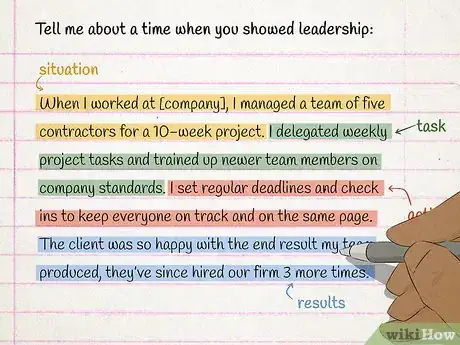
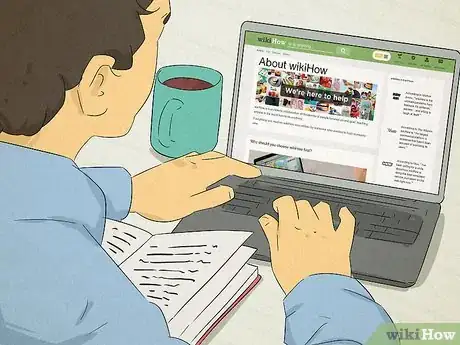
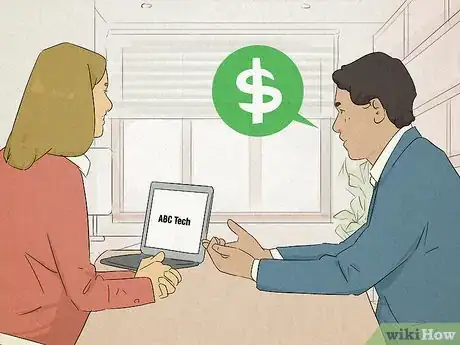
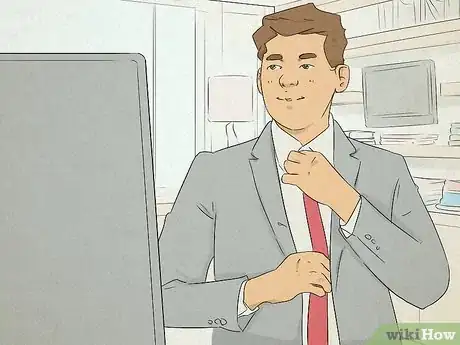
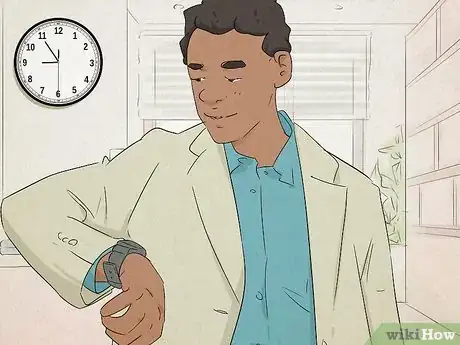
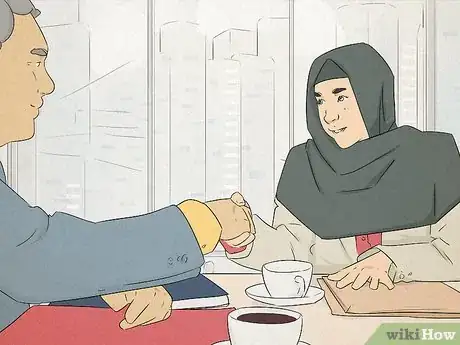
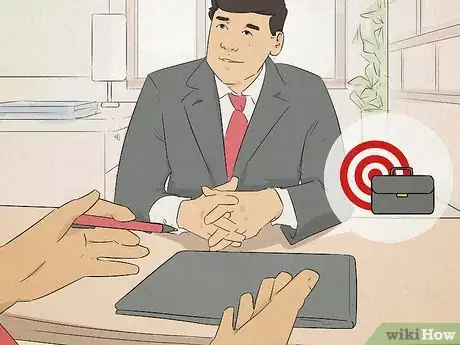

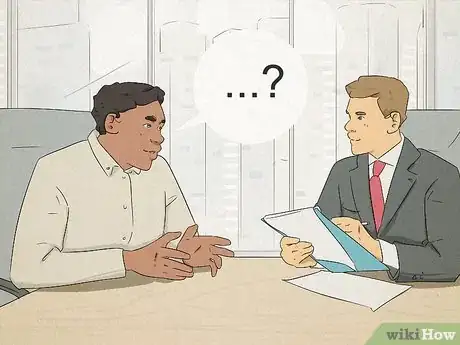
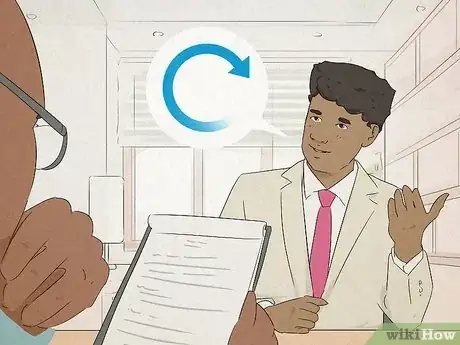
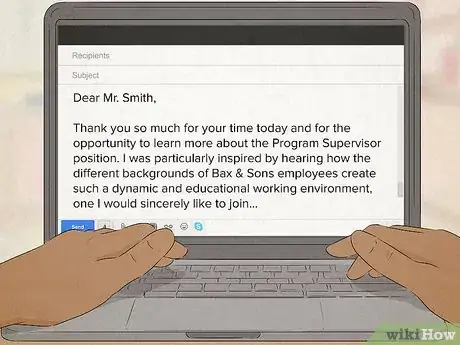
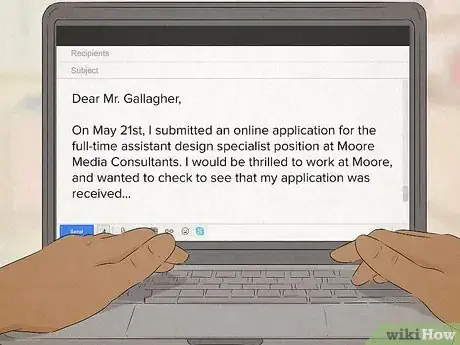
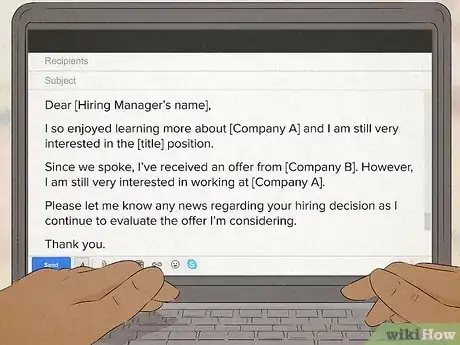
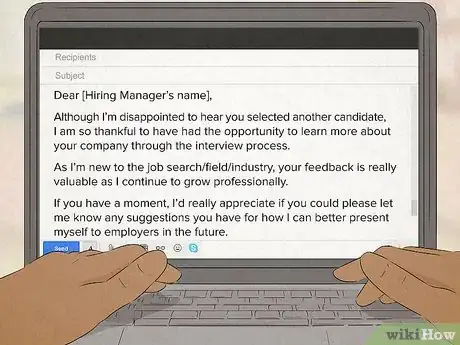






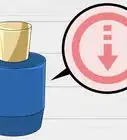

-Step-5-Version-4.webp)




































